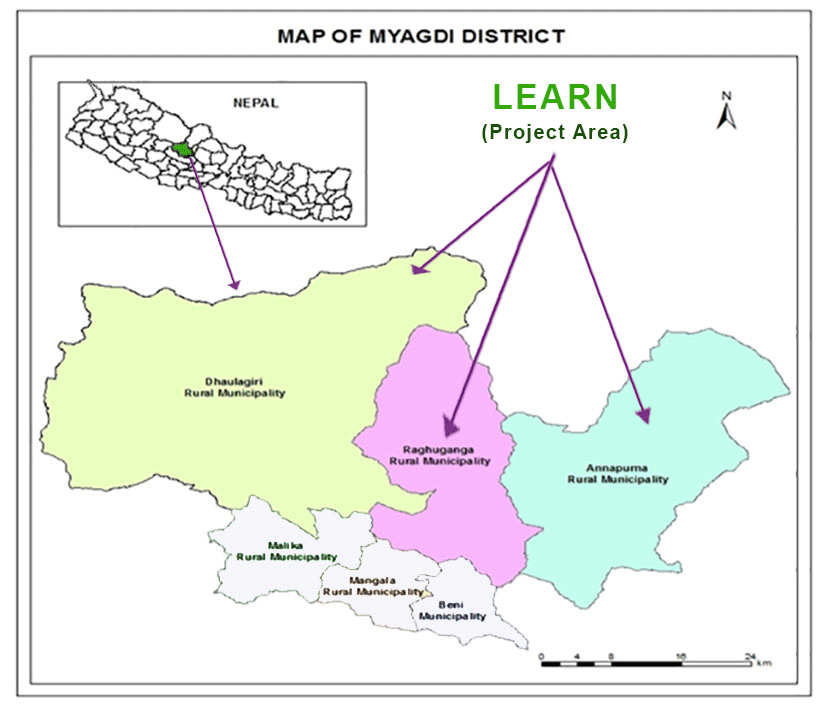LEARN is primarily focused on one rural district of Gandaki province, namely, Myagdi. LEARN mainly focuses on Lifting Education Programme in Rural Municipalities of Myagdi District. It has been working in 98 communities schools covering three municipalities (Annapurana RM, Raghuganga RM and Dhawalagiri RM).

Goals
- Adopt the best practices and ensure students’ active participation in learning
- Improve students’ retention, enrolment and regularities in schools
- Improve community involvement in schools
- Make the schools resourceful
- Establish strong school culture
- Develop educational leadership among teachers, head teachers and SMC
Project Objectives
- Develop child friendly teaching learning environment by innovative teaching skills and strategies
- Increase involvement of parents and communities in school activities
- Increase active participation of child clubs in school and community activities
- Provide need-based support to schools, such as instructional, IT and library resources
- Ensure equitable access to appropriate teaching learning resources
- Develop a dynamic Lead Teachers’ Network for assisting in training and monitoring activities and sustainable in-school support activities to impart quality education
Strategy and Policy
Use of local role models
LEARN has experienced that there are always some role models in every community. It believes that these role models should be utilized at the community level. These role models are very effective in convincing and persuading communities, as communities can relate themselves with local role models. LEARN therefore intends to make use of local role models in the implementation of project activities. Sharing of experiences with stakeholders and like-minded persons and institutions is carried out on a regular basis at community, rural municipalities and district level. This helps in the dissemination of information and learning from each other.
Bottom-up Planning
While carrying out planning activities, it is significant to consider not to imposing ideas and plans from the top. Efforts are made to involve communities as far as possible in the planning process. Such involvement not only brings about ownership of the activities, but also enhances the capacity of the communities to plan, implement and monitor development activities, contributing to empowerment of the communities.
Partnership and Collaboration
LEARN builds and nurtures partnership with other like minded organisations for achieving the objectives of the project. It works in close coordination with Social Welfare Council, Local Governments and Education Development and Coordination Unit.
Strengthening of government institutions
LEARN believes that there should be no structures parallel to the government structures for service delivery. LEARN therefore concentrates on the capacity building measures of both the service recipients and the providers. LEARN supports in achieving the target of School Improvement Plans. It reviews, plans and monitors project activities together with government institutions and shares the findings and learning at larger forums among NGOs and government institutions.
Community Resource Mobilization
LEARN adopts a two-pronged strategy for resource mobilization. It makes efforts to generate resources at the local level. Local resources are identified and their potential for their use in teaching learning activities is examined. The dependency on external agencies is reduced to the extent possible. LEARN also directs its efforts towards government agencies with a view to bringing public resources to the community.